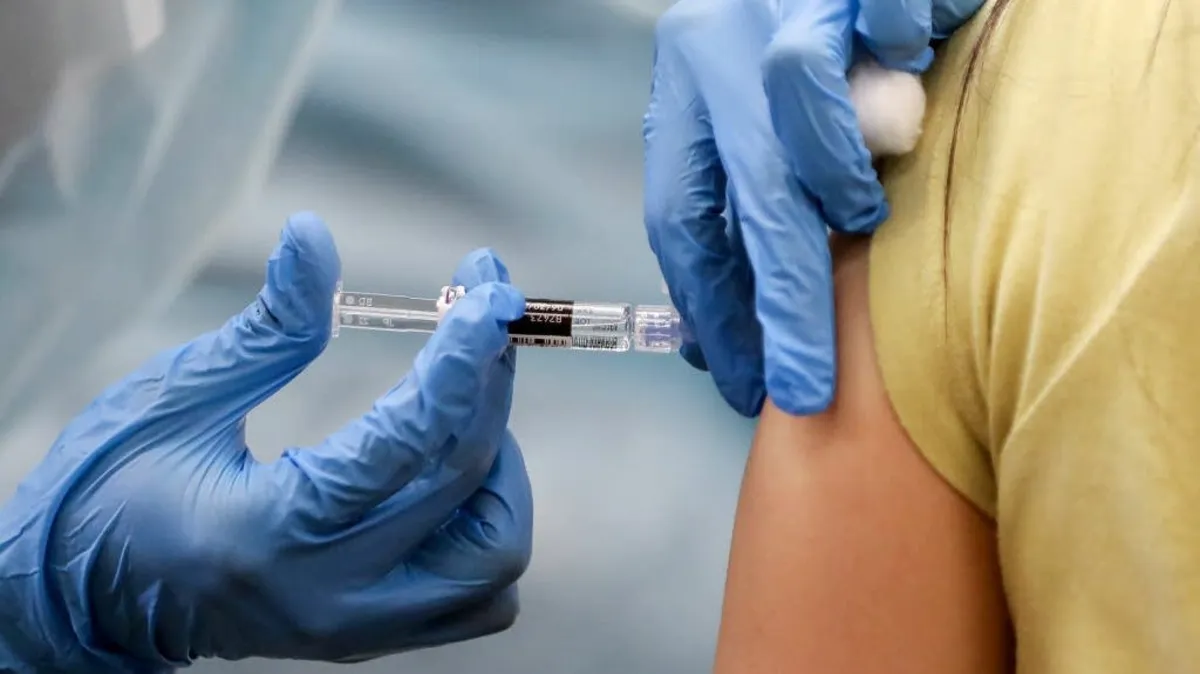
This year's flu season has proven to be one of the worst in decades, raising serious concerns about the effectiveness of future flu vaccinations. As public health officials grapple with the current crisis, uncertainties surrounding next year’s vaccination strategy are growing. Recently, the Food and Drug Administration (FDA), now led by vaccine skeptic Robert F. Kennedy Jr., unexpectedly canceled a crucial March meeting of scientists responsible for advising the FDA on vaccine policy. This cancellation has sparked alarm, especially following the postponement of a similar meeting at the Centers for Disease Control and Prevention (CDC) last week.
According to epidemiologist Michael Osterholm, director of the University of Minnesota Center for Infectious Disease Research and Policy, the timeline for developing flu vaccines is already tight. Cancellations of these March meetings are significant because it typically takes about six months for the virus to grow, making it available for distribution in late summer or early fall. Osterholm likened the process to “planting a garden,” warning that delays could jeopardize the ability to harvest effective vaccines in time.
“If you postpone it two months, you might face challenges when it comes to harvesting the vaccine, and you might even risk not being able to harvest it at all,” he explained. With the flu virus capable of evolving, the urgency to predict which strains will circulate next winter is paramount. Osterholm stated, “This is our best guess and our best attempt to match the virus circulating next winter with what’s in the vaccine.”
One question that arises is whether the bird flu could impact vaccine development, given that flu vaccines are often grown using chicken eggs. Osterholm reassured that this is not a concern. “Following the events of 9/11, the U.S. government and vaccine manufacturers took extensive measures to secure the facilities where these eggs are produced,” he mentioned. The eggs used in vaccine production are embryonated, meaning they are fertilized and undergoing development, and the chickens are raised under stringent biosecurity measures.
“The buildings are airtight with special filters,” Osterholm noted, emphasizing their confidence in the safety of the production process. “Even if a H5N1 situation arises nearby, we are still in good shape.”
Many are questioning whether vaccines can be manufactured without guidance from the FDA or CDC panels. These panels evaluate flu activity in the southern hemisphere, which is crucial for predicting what strains will impact the U.S. in the following months. Osterholm stressed the importance of this data, stating, “Without those kinds of data, we can’t make educated decisions.”
He added, “It’s not a casual decision; a major effort is made to ensure the closest possible match for the flu strains.” The timing and outcomes of these meetings are critical for public health.
With the federal government potentially scaling back mass vaccination efforts, questions arise about how individuals can still access flu shots. Osterholm expressed deep concern regarding the current state of vaccine-preventable diseases in the U.S., noting that several state governments are increasingly aligning with anti-vaccine sentiments, particularly under Kennedy's influence.
For instance, Louisiana’s Surgeon General recently declared that the state health department no longer supports vaccine campaigns for children, urging parents who wish to immunize their children to seek out vaccines independently. In addition, outbreaks of measles in Texas and New Mexico are raising alarms, as vaccination rates for the MMR (measles, mumps, and rubella) vaccine have significantly dropped.
Osterholm warned, “There is an ever-creeping concern about the public not getting vaccinated. If we fail to address this, we may face dire consequences.”
With the cancellation of the Advisory Committee on Immunization Practices’ meeting, the mechanism for recommending vaccines and securing funding for child vaccination programs is in jeopardy. Osterholm explained, “Without these recommendations validated by the CDC, there won’t be a system in place to fund these vaccines.” Many state and local health departments rely heavily on federal support for their immunization programs.
Concerns are mounting that a reduction in federal vaccine programs could lead to significant layoffs at the CDC, impacting local health initiatives. “I am incredibly concerned about a major erosion in childhood vaccination rates in this country over the next year or two,” he asserted, warning that this could lead to substantial outbreaks.
As discussions about pandemic readiness continue, Osterholm remarked, “The pandemic clock is ticking. We just don’t know what time it is.” He emphasized that future pandemics are inevitable and could be more severe than COVID-19. “Are we prepared for this? Absolutely not,” he stated, highlighting that lessons from the COVID-19 crisis have gone unheeded.
“We might enter the next pandemic even less prepared,” he cautioned. “Moreover, public trust in health authorities is at an all-time low.” The ongoing challenges in vaccine policy and public health readiness are critical issues that need immediate attention to avert future health crises.